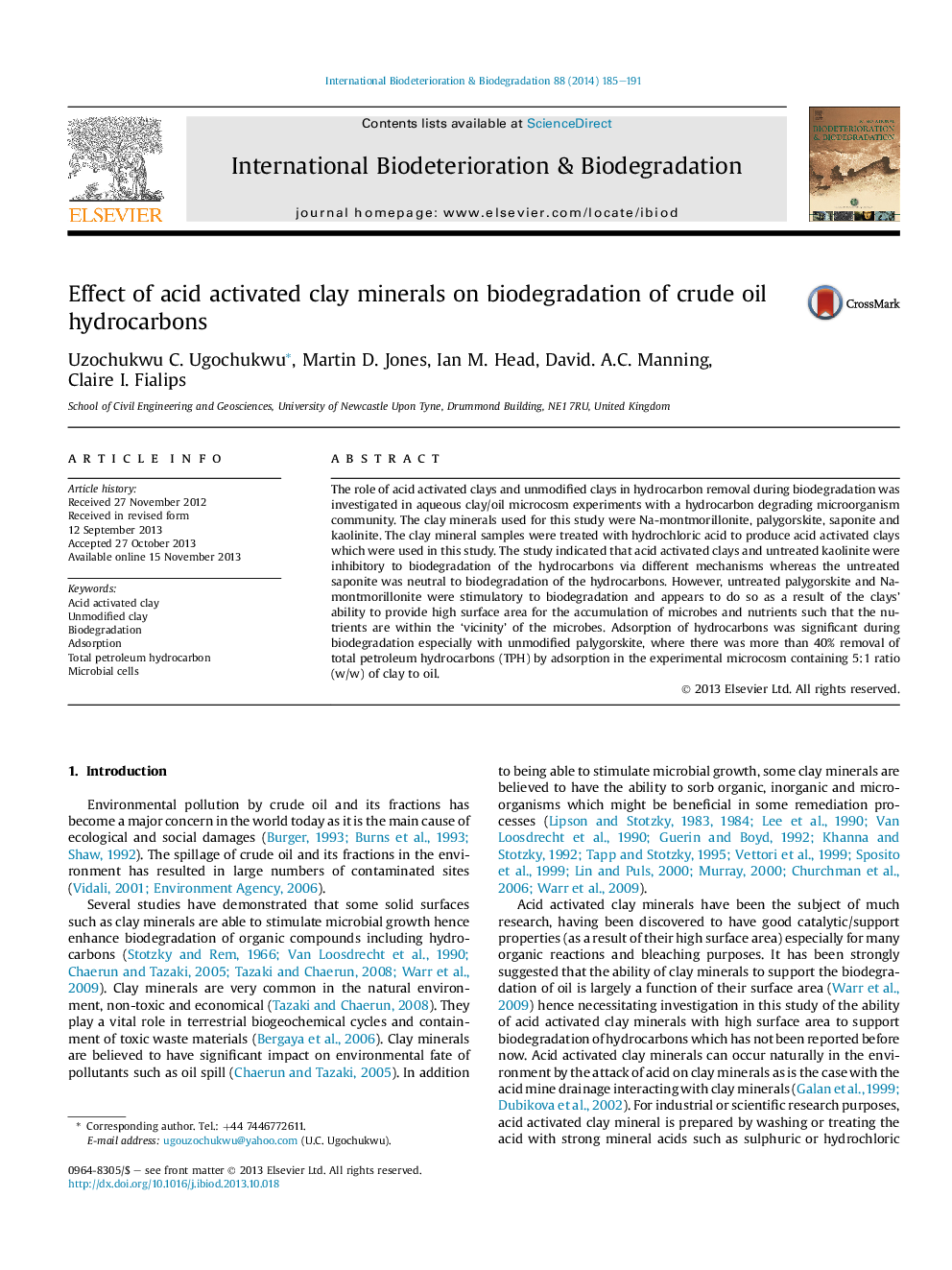| Article ID | Journal | Published Year | Pages | File Type |
|---|---|---|---|---|
| 4364929 | International Biodeterioration & Biodegradation | 2014 | 7 Pages |
•Sodium montmorillonite stimulates the biodegradation of crude oil hydrocarbons.•Unmodified saponite neither stimulates nor inhibits biodedgradation of hydrocarbons.•Unmodified kaolinite inhibits biodegradation of crude oil hydrocarbons.•Unmodified clay minerals adsorb hydrocarbons during biodegradation significantly.•Acid activated clay minerals inhibit the biodegradation of crude oil hydrocarbons.
The role of acid activated clays and unmodified clays in hydrocarbon removal during biodegradation was investigated in aqueous clay/oil microcosm experiments with a hydrocarbon degrading microorganism community. The clay minerals used for this study were Na-montmorillonite, palygorskite, saponite and kaolinite. The clay mineral samples were treated with hydrochloric acid to produce acid activated clays which were used in this study. The study indicated that acid activated clays and untreated kaolinite were inhibitory to biodegradation of the hydrocarbons via different mechanisms whereas the untreated saponite was neutral to biodegradation of the hydrocarbons. However, untreated palygorskite and Na-montmorillonite were stimulatory to biodegradation and appears to do so as a result of the clays' ability to provide high surface area for the accumulation of microbes and nutrients such that the nutrients are within the ‘vicinity’ of the microbes. Adsorption of hydrocarbons was significant during biodegradation especially with unmodified palygorskite, where there was more than 40% removal of total petroleum hydrocarbons (TPH) by adsorption in the experimental microcosm containing 5:1 ratio (w/w) of clay to oil.
